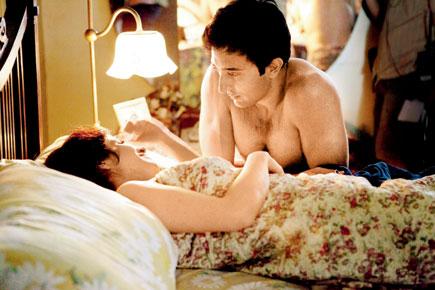In 2005, director Sabal Singh Shekhawat was mugged in New York. It sparked an idea, which culminated in his soon-to-be-released debut movie, Fireflies

If Sabal Singh Shekhawat had his way, movies would be more compelling and realistic. Son of a tea planter in Assam, Shekhawat made his way to Mumbai after his schooling and graduation from Delhi. After 18 years of producing and directing commercials such as Dabur Real Juice, Jeevansaathi.com, Ford Fiesta and Hero Honda, the 47-year-old started Wild Geese Pictures in 2012 — a feature film production company and is ready with his debut movie, Fireflies, starring Rahul Khanna, Monica Dogra and Arjun Mathur. The English movie premiered at the New York Indian Film Festival earlier this year and is set to release on October 31. Excerpts from an interview:
ADVERTISEMENT

Rahul Khanna plays a pivotal part in Fireflies
Q. Your profile describes you as somebody who has numerous award-winning commercials to his credit. Can you tell us about some of them?
A. We won an award at Cannes for a public service commercial. However, awards don’t really matter to me. My ex-boss, Shantanu Sheorey, used to say that awards are given and made by people who decided to get awards among themselves. I believe you can’t really judge a piece of work against another piece of work, which has been given a completely different brief. I agree with that.
Q. How did you start writing, and eventually, think of directing a feature film?
A. I started writing commercials because the scripts we got needed much re-writing. Then, I received a few offers to direct features for studios, but I wasn’t too keen. Also, I wasn’t ready to do a feature because I always believe that you need to have lived a certain number of years to have perspective. I felt that the kind of stuff I wanted to do could not be written by someone else, as the stories and perspectives are really personal. They are inspired from events, people, situations, music and it’s very hard to communicate that to somebody else.
Q. You had written a script which didn’t end up being considered for a film...
A. I wrote a script and sent it to John Abraham, who’s a good friend. It was an action film called Kafan. Studio 18 was also involved, but they shelved it because the studio changed hands, and decided that the budget was high. Other studios wanted us to compromise in terms of casting, music and other things. I didn’t want to do it that way. Fireflies was written a couple of years before this script and we decided to pull it out of cold storage, raise our own money and go ahead with it.
Q. We’re intrigued by the fact that you got mugged in New York and that’s where Fireflies began.
A. I was in New York in 2005 when I came across a group of drunk men. It was like a scene out of a B-grade movie. They wanted to mug me. A few blows were exchanged, but I managed to escape. The next morning, I woke up with a heavy fever and was in much pain. I was really upset, so I started to write. It was basically about what makes people react the way they do. It loosely culminated from what I thought those guys had against me. I then kept going to the idea of the battle which might have raged inside those muggers to create the ugliness on the outside.

Sabal Singh Shekhawat’s next two films are in Hindi
Q. What is the significance of the fireflies?
A. I grew up in the tea gardens of Assam where we would look forward to fireflies twice a year. There would be millions of fireflies from nowhere and they were mesmerising to watch. I remember a cousin telling us that they live only for a day. That stuck in my head, that these things that have come in the night with no history, come, glow and are gone. So I’m trying to draw a parallel here with human lives. All that we do is to take birth, exist and go. In short, life is short. Another aspect is that they can see in the dark, because they’ve got a glow within them and hence, they don’t fear the night. So the metaphor is that if you have the glow within you, you will not fear darkness.
Q. What’s the vision you have for your film production company?
A. I want to work without the constraints of people’s egos and diktats and create compelling films. They don’t have to be in English — our next two films are in Hindi. They must be thought-provoking.
 Subscribe today by clicking the link and stay updated with the latest news!" Click here!
Subscribe today by clicking the link and stay updated with the latest news!" Click here!






